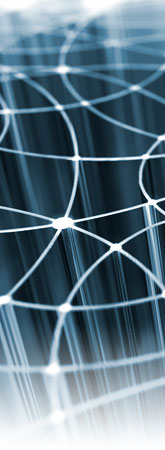eTraining
Enabling Digital Library professionals
"I would very much like to share what I have gained from my studies here in Europe and my insights into DL.org with my colleagues in the Philippines, while also taking a leading role in the future in educating new DL professionals",Marcial Batiancila, Master Student of the Erasmus Mundus programme Digital Library Learning.
DL.org key outputs include a Digital Library Reference Model comprising the Manifesto, In a Nutshell, Concepts and Relations and a Conformance Check List, as well as a Cookbook with an interoperability framework, current and emerging solutions to foster new advances in the field and open up new research perspectives.
eLearning is a significant feature of education and training for librarianship and information science. While there are countless papers and web-based content in the field, we face many challenges in making our systems interoperable and in helping users develop a clear model of what services they provide. To support teaching and learning about digital libraries with these challenges firmly in mind, the DL.org training and educational programme focuses on the following key components:
- Lectures, demos and student group presentations of the DL.org Autumn School in October 2010. These resources shed light on reference modelling, interoperability patterns and solutions with real-life examples and particular reference to the DL.org Digital Library Reference Model and Technology and Methodology Cookbook - April 2011
- Web-based DL.org modules hosted on the Digital Library Section of Wikiversity in synergy with the U.S. Digtial Library Curriculum Development initiative.
- Detailed Virtual Reading List compiled to facilitate digitsl library students.
- Web-based induction courses on the Digital Library Reference Model from which the DL.org Reference Model stems. These Moodle courses include self-assessment testing, offfering an initial step to reference modelling.
Resources focus on key DL.org outputs - the Digtial Library Reference Model and the Technology and Methodology Digital Library Cookbook, demos and digitally captured lectures. All of these resources aim to assist a spectrum of digital library professionals and information scientists, whether they be practitioners, teachers, students or researchers. All the resources can be selected and used at the professional's own pace, in a cost-effective way, irrespective of geographical location.
Testimonies on DL.org Training
Librarians, Librarian Managers and DL developers at the DL.org Autumn School
“Collaboration by working on problem solving solutions, the participation of the speakers during the lessons and presentations scenarios based on real-life cases is what I liked best. Additional practices solutions and best methods in order to organise or reorganise digital libraries and repositories is what I am taking away with me.”
“What I liked most was the D4Science demo, bringing a different perspective. For me the main take-away is new knowledge on conceptualisation and generalisation of Digital Library model, as well as interoperability guidelines.”
“I really liked the extensive and thorough presentation of all aspects of Digital Libraries, Digital Library Systems and Digital Library Management Systems. I take back with me new know-how on the DL.org Reference Model and the Cookbook.”
“The organisation into the various fundamental “domains”, how they have been treated and explained to us, so as to understand the essential importance and role of each of them to achieve interoperability is what I liked best. Useful theoretical as well as practical references to promote some Digital Libraries ideas for future projects is what I am take back with me.”

